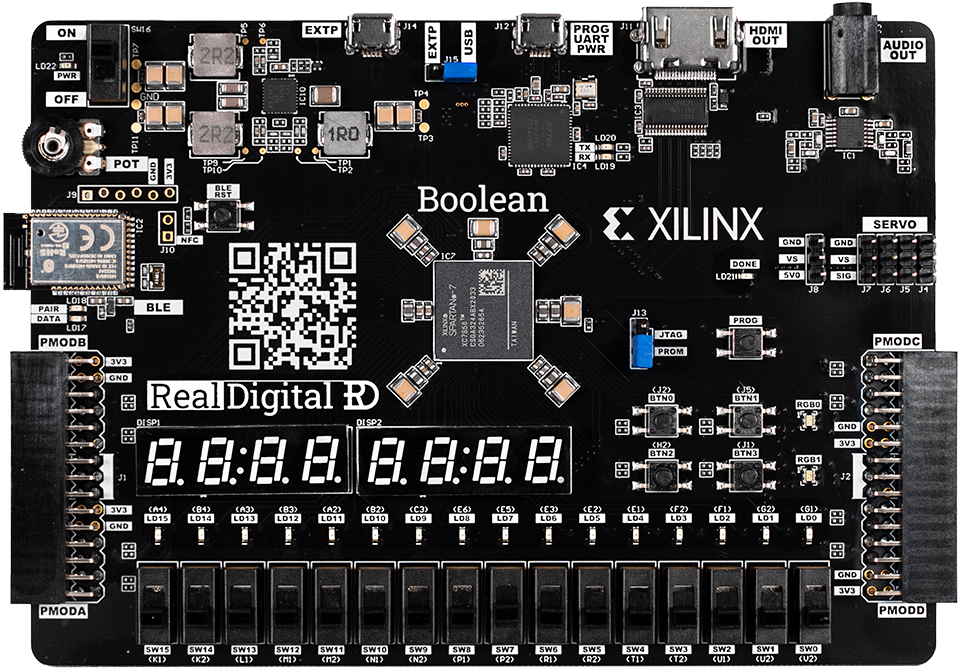Boolean Board
Note: to receive academic pricing, you must be logged into Real Digital as an academic customer
The Boolean board is an FPGA-based educational platform designed specifically for electrical and computer engineering education. Based on an AMD Spartan-7 FPGA, the Boolean board includes a large collection of peripheral devices and ports, allowing countless designs to be built without the need for any other components. The free Vivado CAD tool from AMD can be used for Verilog or VHDL entry, as well as for simulation, synthesis, and FPGA programming. A single USB connection provides power, a UART/COM port, and a programming port.
The Boolean board is an FPGA-based educational platform designed specifically for electrical and computer engineering education. Based on an AMD Spartan-7 FPGA, the Boolean board includes a large collection of peripheral devices and ports, allowing countless designs to be built without the need for any other components. The free Vivado CAD tool from AMD can be used for Verilog or VHDL entry, as well as for simulation, synthesis, and FPGA programming. A single USB connection provides power, a UART/COM port, and a programming port.
$104.00
$84.00
Upgrade
With Bluetooth (BLE) Radio
+ $13.00
- Xilinx Spartan-7 XC7S50-CSGA324 FPGA
- USB port for power, programming and UART/COM port
- Bluetooth Low Energy (BLE) radio
- HDMI source (up to 1080p)
- 16MB QSPI
- 8-digit seven-segment display
- 16 slide switches
- 4 pushbuttons
- 16 discrete LEDs
- 2 RGB LEDs
- Audio out (PWM)
- Four servo motors
- On-board ADC with thumbwheel potentiometer
- 2 Pmod+ connectors (4 Pmods)
